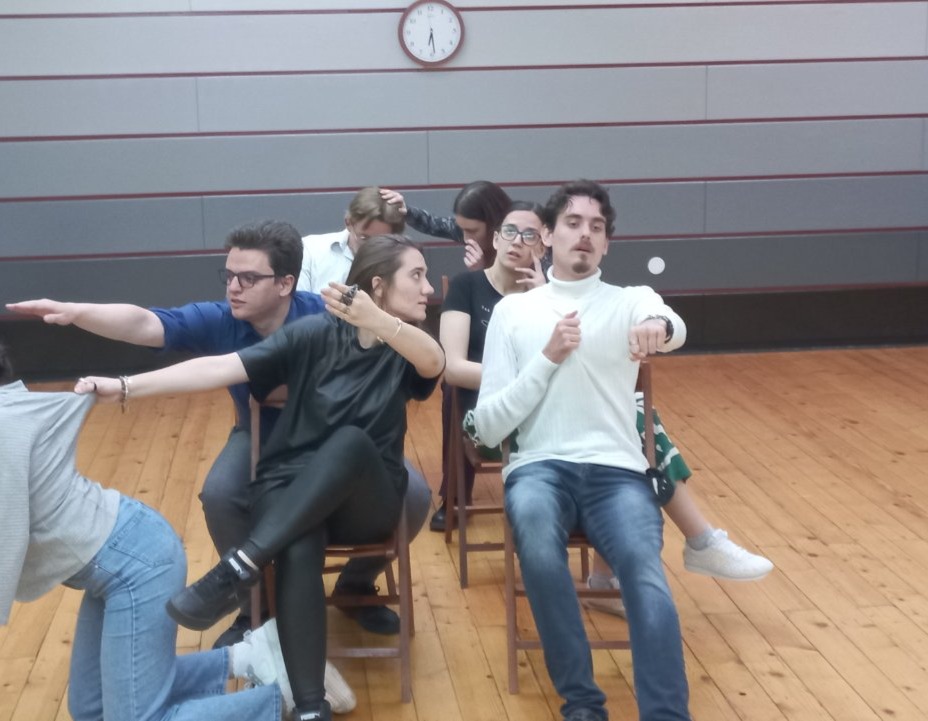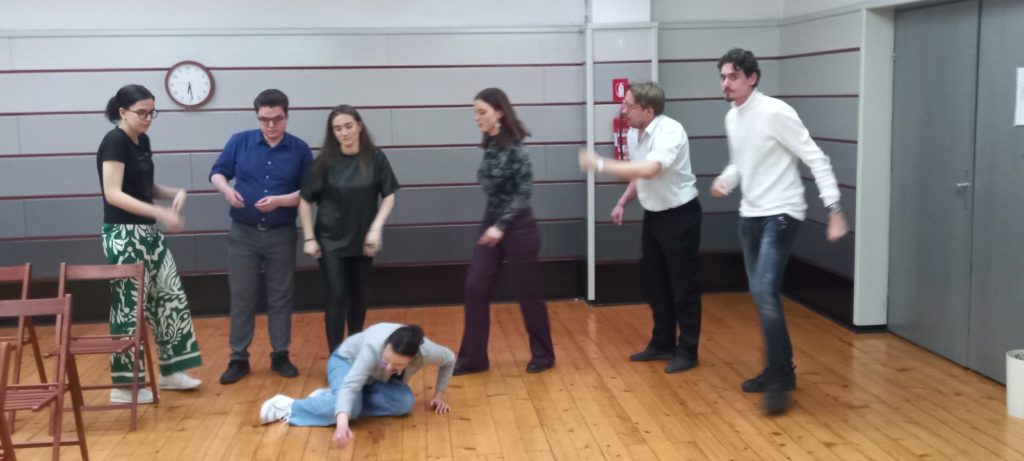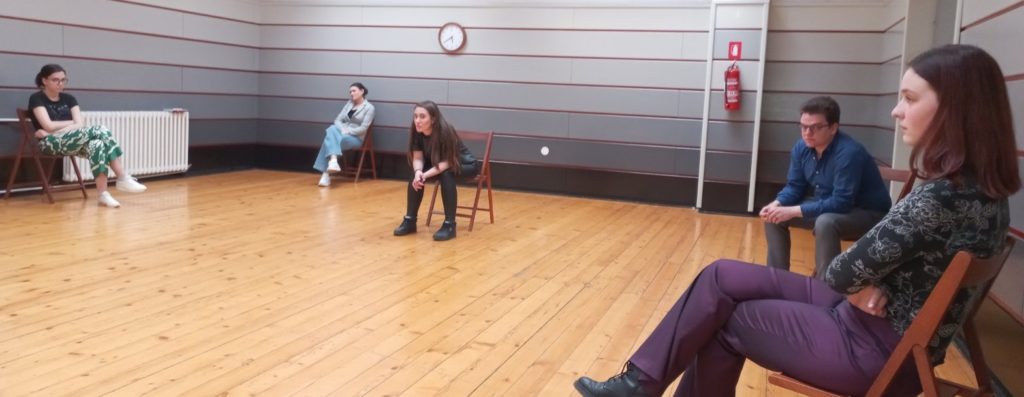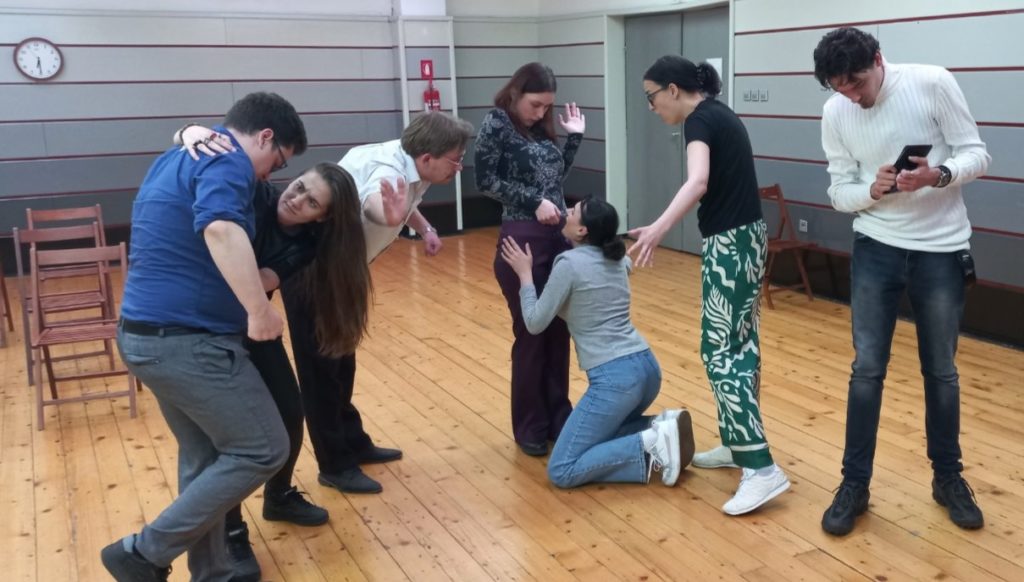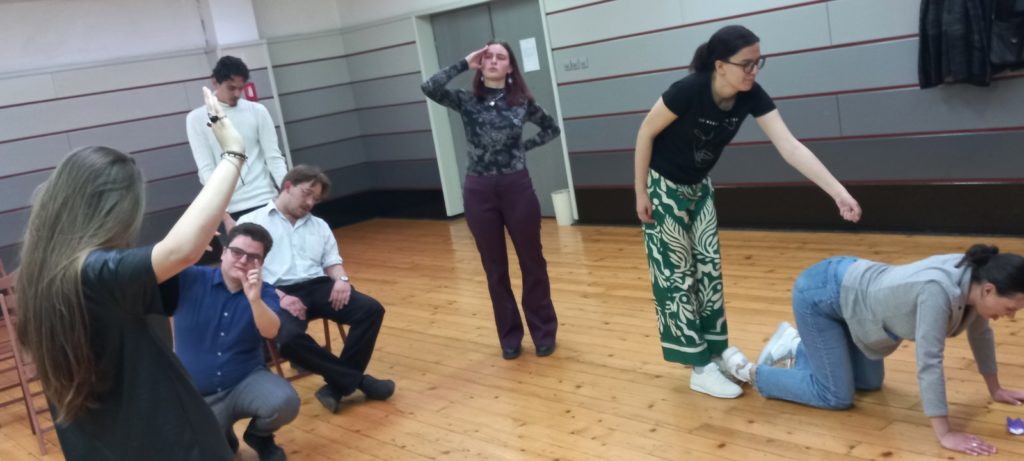Second drama education and acting workshop of the Student Theater Club
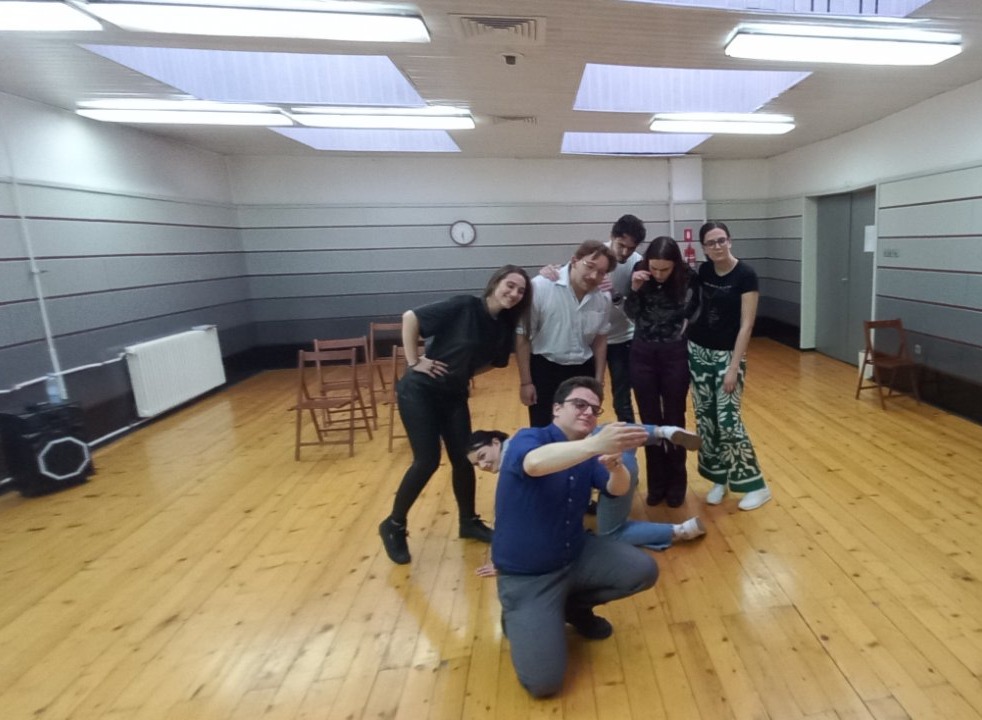
The second workshop within the program of drama education, acting and theatrical creativity was held in the rehearsal hall of the Bosnian National Theater in Zenica for students of the Student Theater Club of the Faculty of Philosophy in Zenica. This time, the workshop was led by M.Sc. Miroljub Mijatović, drama pedagogue, actor and director of the BNP Zenica. In addition to students of the Cultural Studies program, the workshop was also attended by students of the study programs Bosnian, Croatian, Serbian language and literature and German language and literature.
During the workshop, students presented a project planned for the upcoming period, which should result in the first ever student theater performance at the University of Zenica. In a creative atmosphere, they discussed the content, themes, and goals of this significant artistic project.
Special focus was on understanding the importance of the chosen dramatic story, character characterization, and the role of theater in the education and development of young people. Through the workshop, students received useful advice for writing a dramatic text, as well as for shaping the concept of the set design for their future production.
The workshop also included practical drama exercises aimed at developing attention, concentration, memory, body language, and boosting self-confidence, which are some of the key skills for every performer.
This project represents an important step towards strengthening the cultural life of the student community in Zenica, and strongly confirms the commitment of the Faculty of Philosophy in Zenica and its students to the development of artistic expression and creative work and a more visible presence in the wider community. This educational activity also represents a continuation of the extremely successful cooperation between the Faculty of Philosophy and the Bosnian National Theatre Zenica in the field of developing drama education and artistic work among young people.

